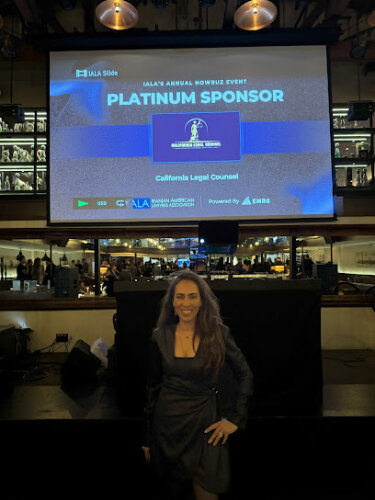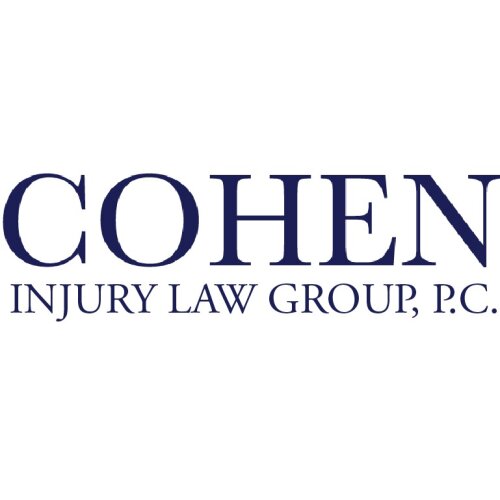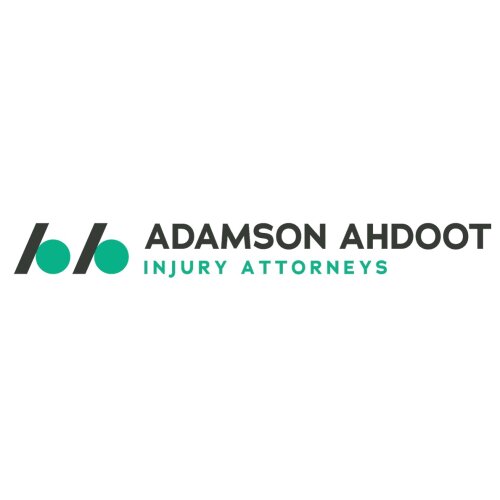Best Toxic Mold Lawyers in Los Angeles
Share your needs with us, get contacted by law firms.
Free. Takes 2 min.
List of the best lawyers in Los Angeles, United States
About Toxic Mold Law in Los Angeles, United States:
Toxic mold, also known as black mold or Stachybotrys chartarum, is a type of mold that can grow in homes and buildings, resulting in health problems for occupants. In Los Angeles, United States, toxic mold is a serious issue that can lead to legal disputes between landlords and tenants, homeowners and contractors, or property owners and insurance companies.
Why You May Need a Lawyer:
You may need a lawyer if you suspect toxic mold in your property and are facing difficulties in getting it properly removed, seeking compensation for health issues caused by mold exposure, or dealing with insurance claims related to mold damage. A lawyer can help you navigate the complex legal landscape surrounding toxic mold and protect your rights in these situations.
Local Laws Overview:
In Los Angeles, United States, laws related to toxic mold are primarily governed by landlord-tenant laws, property damage laws, and health and safety regulations. Landlords are required to maintain a safe and habitable living environment for tenants, which includes addressing mold issues promptly. Property owners and contractors also have a legal duty to disclose mold problems to potential buyers or tenants. Additionally, there are regulations under the California Health and Safety Code that apply to mold remediation practices.
Frequently Asked Questions:
Q: What should I do if I suspect toxic mold in my property?
A: If you suspect toxic mold in your property, you should contact a professional mold inspector to conduct a thorough assessment. It is important to address mold problems promptly to protect your health and legal rights.
Q: Can I sue my landlord for mold-related health issues?
A: Depending on the circumstances, you may be able to take legal action against your landlord for mold-related health issues. Consult with a lawyer to determine the strength of your case and the best course of action.
Q: How do I prove that mold exposure caused my health problems?
A: To prove that mold exposure caused your health problems, you may need to provide medical documentation linking your symptoms to mold exposure, as well as evidence of mold presence in your property. A lawyer can help you gather the necessary evidence to support your claim.
Q: Can my insurance company deny coverage for mold damage?
A: Insurance companies may deny coverage for mold damage under certain circumstances, such as if the policy excludes mold-related claims or if the mold was caused by negligence. It is advisable to review your insurance policy with a lawyer to understand your coverage rights.
Q: How long do I have to file a mold-related lawsuit in Los Angeles?
A: The statute of limitations for filing a mold-related lawsuit in Los Angeles may vary depending on the nature of the claim and the parties involved. It is advisable to consult with a lawyer as soon as possible to ensure that you meet any legal deadlines.
Q: What are my rights as a tenant regarding mold in rental properties?
A: Tenants have the right to live in a safe and habitable environment free from toxic mold. If your landlord fails to address mold issues in a timely manner, you may have legal recourse to seek remedies such as rent reduction, repairs, or lease termination.
Q: Can I be held liable for mold in my rental property as a landlord?
A: Landlords can be held liable for mold in rental properties if they fail to maintain a safe and habitable living environment for tenants. Proper mold inspection, remediation, and disclosure are essential to avoid legal consequences as a landlord.
Q: What are the common health effects of toxic mold exposure?
A: Common health effects of toxic mold exposure may include respiratory issues, allergic reactions, skin irritations, headaches, and fatigue. Individuals with compromised immune systems or underlying health conditions may be more vulnerable to mold-related health problems.
Q: Is it possible to prevent mold growth in my property?
A: While it is not always possible to prevent mold growth entirely, you can take steps to minimize the risk of mold infestation by controlling moisture levels, fixing leaks promptly, improving ventilation, and conducting regular mold inspections.
Q: How can a lawyer help me with a toxic mold case in Los Angeles?
A: A lawyer with experience in toxic mold cases can assess the legal merits of your case, negotiate with parties involved, gather evidence to support your claim, represent you in court if necessary, and help you seek fair compensation for mold-related damages.
Additional Resources:
For more information on toxic mold laws and regulations in Los Angeles, you can contact the California Department of Public Health, Los Angeles County Department of Public Health, or consult with legal aid organizations specializing in housing and environmental law.
Next Steps:
If you believe you have a legal issue related to toxic mold in Los Angeles, United States, it is advisable to seek legal advice from a qualified attorney who specializes in this area. A lawyer can help you understand your rights, assess your options, and guide you through the legal process to protect your interests.
Lawzana helps you find the best lawyers and law firms in Los Angeles through a curated and pre-screened list of qualified legal professionals. Our platform offers rankings and detailed profiles of attorneys and law firms, allowing you to compare based on practice areas, including Toxic Mold, experience, and client feedback.
Each profile includes a description of the firm's areas of practice, client reviews, team members and partners, year of establishment, spoken languages, office locations, contact information, social media presence, and any published articles or resources. Most firms on our platform speak English and are experienced in both local and international legal matters.
Get a quote from top-rated law firms in Los Angeles, United States — quickly, securely, and without unnecessary hassle.
Disclaimer:
The information provided on this page is for general informational purposes only and does not constitute legal advice. While we strive to ensure the accuracy and relevance of the content, legal information may change over time, and interpretations of the law can vary. You should always consult with a qualified legal professional for advice specific to your situation.
We disclaim all liability for actions taken or not taken based on the content of this page. If you believe any information is incorrect or outdated, please contact us, and we will review and update it where appropriate.













